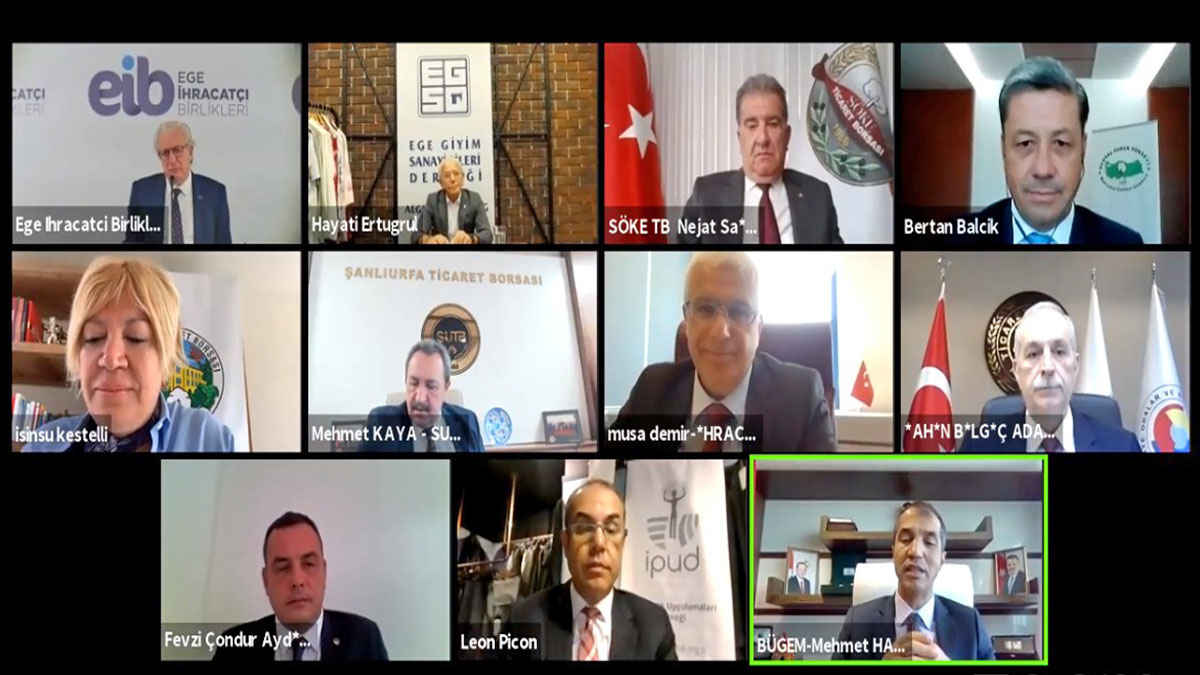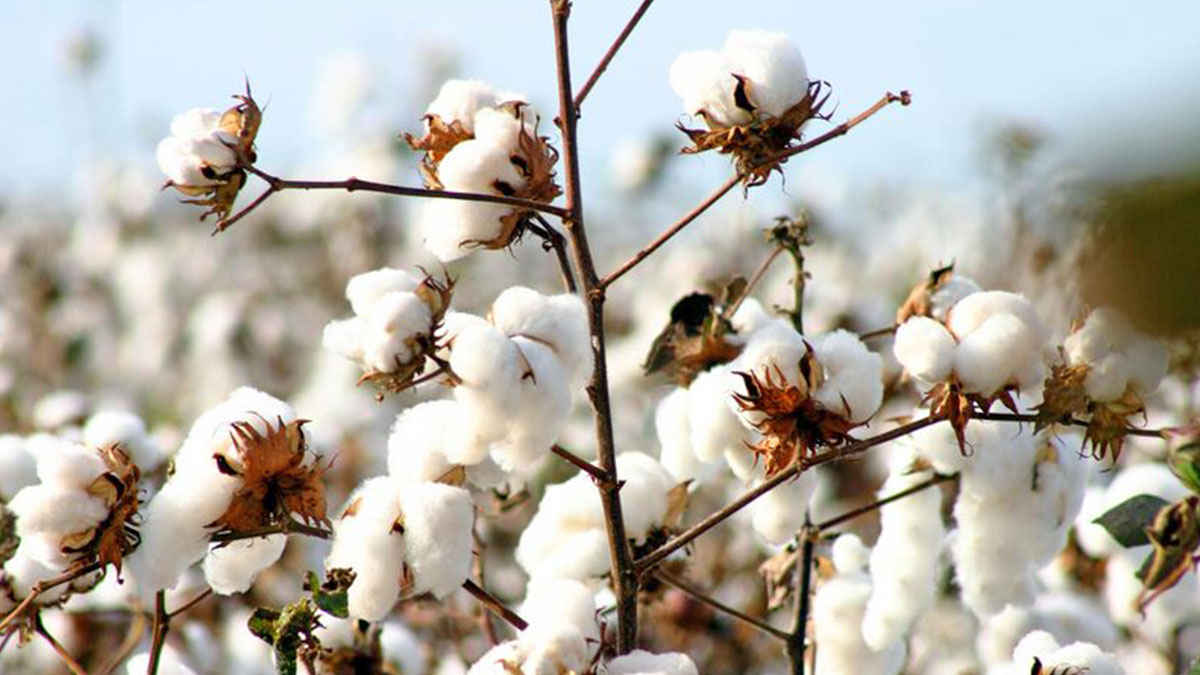The textile and apparel industries generated over 60 million USD added value in 2019. However, sector stakeholders state that they are not happy due to the policies followed regarding cotton, the raw material of these sectors. Last year, 43% of the 1.6 million tons of cotton needed by the Turkish textile and apparel industry was supplied domestically, while cotton imports worth 1 billion 571 million USD were realized. Turkish cotton misses its old days.
An online session on cotton, a strategic product for Turkey, was held on October 7 Cotton Day. The session titled ‘Facts About Cotton’ was organized in cooperation with the National Cotton Council, İzmir Commodity Exchange, Aegean Exporters Unions, Söke Commodity Exchange, Aegean Clothing Manufacturers Association and Good Cotton Practices Association. Industry representatives drew attention to shortcomings in Turkey’s cotton policy side, while Agriculture Crop Production and Forestry Ministry Director General Dr. Mehmet Hasdemir and Ministry of Commerce Deputy General Manager for Exports, Musa Demir, expressed the government’s support for cotton.
Support for cotton will be announced shortly
Agriculture Crop Production and Forestry Ministry Director General Dr. Mehmet Hasdemir summarized the perspective of his ministry on cotton production, and he explained that they made support payments under the name of difference payment, Diesel fertilizer, Soil analysis and organic agriculture support, to cotton producers.
Hasdemir said that within the total support budget of the Ministry of Agriculture and Forestry, the most support was given to cotton producers. Hasdemir informed that cotton supports are in the first place with a share of approximately 20% in the support budget for plant production, and noted that the support amount for this year, which will satisfy cotton producers, will be announced as soon as possible.
Musa Demir, Ministry of Commerce Deputy General Manager for Exports, emphasized that the textile and ready-to-wear sectors are the driving forces in employment, production and exports. He pointed out that Turkey is one of the few countries that is both a cotton producer and textile and apparel manufacturer and that is a kind of wealth. Demir said; “We must transform into a brand thanks to these industries in which we are good around the world. There is a return to nature due to the pandemic. The address of natural in clothing is cotton. Conversion economy is important, reuse is important. Cotton is less harmful to the environment than plastic products”.
Delayed support does not help
Defining Anatolia as an ancient cotton geography, National Cotton Council President Bertan Balçık underlined that these soils are extremely fertile for cotton production. Emphasizing that as of 2019, Turkey is using 1.54 percent of world cotton area, which performs the 3.14 percent of world production, Balçık stated that although cotton is the product with the highest field efficiency, producers receive less support than other cotton producing countries. Balçık said;
“High yield in cotton is only possible with intense input. In contrast, world cotton prices remain low due to some countries supporting their cotton production at rates beyond compensation. As an average of the last 11 years, 55% of world cotton production consists of supported cotton. As of 2018, China provided 57, USA 14, Greece 35 Cent, and Spain 48 Cent for each kg of fibre. Our producers received 14 cents support. However, it prevented the benefit that was expected to be paid without notice and with a one-year delay”.

Cotton production is at the breaking point!
Stating that cotton is defined as white gold due to its economic value rather than its colour; Işınsu Kestelli, Chairman of İzmir Commodity Exchange, argued that cotton is a strategic product for our country. Kestelli said; “Our policies regarding cotton have to be equivalent to this strategic importance. Cotton is not an agricultural product that has an alternative for our country’s production. Cotton production is at the breaking point. For this reason, we demand that cotton production be supported in line with the target of at least 1 million tons of strategic production; which the sector has agreed upon, in order not to enter a process that we cannot compensate”.
GMO-free Turkish cotton, the key to sustainability in apparel and textile
Jak Eskinazi, Coordinator President of Aegean Exporters’ Associations (EİB) stated that consumers’ preferences and awareness towards sustainable products are increasing day by day. Noting that sustainability is among the priorities of the sector with its environmental, social and economic dimensions; Eskinazi continued his words as follows;
“Cotton, which is the basic raw material of our industry; is an indispensable natural fibre for the textile and ready-to-wear industries; and cotton has become more important with the increasing importance of sustainability in our industry. Cotton is a cellulose-based natural fibre; and has an important advantage with its easy solubility in nature; especially when compared to PES and other synthetic fibres. Due to the non-GMO cotton production in Turkey, our cotton, produced using conventional methods, has sustainable features. In addition, our country has an important place in the production of organic cotton and Better Cotton produced by sustainable methods”. Eskinazi reminded that Turkey’s cotton production of 750 thousand tons; while consumption is recalling 1.5 million tonnes in the 2019/20 season; and emphasized that only half of the cotton demand could be met domestically.
Indicating that 40% of the cotton production in Turkey was held in Şanlıurfa; Şanlıurfa Commodity Exchange Chairman Mehmet Kaya stated that the fibre of the cotton plant is used in textile; its core as a raw material in the oil and feed industry, and the linter in the paper industry. Söke Commodity Exchange Chairman Ahmet Nejat Sagel said that Turkey has a favourable ecology for the production of cotton. Adana Commodity Exchange Chairman Şahin Bilgiç stated that cotton is the symbol of Çukurova; and it is a product that adds wealth to Çukurova. Aydın Commodity Exchange Chairman Fevzi Çondur said that cotton producers had to sell their products under 12 percent of imported cotton; due to free import, and that free import negatively affected the domestic cotton producer.


